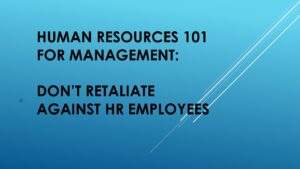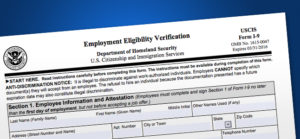 Much has been written regarding the alleged criminal and unethical conduct of various officials with the El Paso Independent School District. Many questions have arisen from this debacle, namely how could high level misconduct continue for so long without someone exposing the wrongdoings sooner? One reason: employees are fearful of retaliation. In fact, it is not uncommon for many who do complain to receive retaliation in the forms of increased scrutiny and criticism of their work, poor evaluations, disciplinary actions, and threats of transfers, demotions, contract non-renewal, or terminations. Unfortunately, current employment laws neither encourage employees to expose wrongdoings, nor protect those who do.
Much has been written regarding the alleged criminal and unethical conduct of various officials with the El Paso Independent School District. Many questions have arisen from this debacle, namely how could high level misconduct continue for so long without someone exposing the wrongdoings sooner? One reason: employees are fearful of retaliation. In fact, it is not uncommon for many who do complain to receive retaliation in the forms of increased scrutiny and criticism of their work, poor evaluations, disciplinary actions, and threats of transfers, demotions, contract non-renewal, or terminations. Unfortunately, current employment laws neither encourage employees to expose wrongdoings, nor protect those who do.
Employees who complain about criminal or unethical conduct often refer to themselves as “whistleblowers”, however few actually are. The Texas Whistleblower Act protects Texas state and local public employees who report a violation of law to an appropriate law enforcement authority. It does not cover federal or private employees. The whistleblower law also applies to very limited scenarios. First, the conduct complained of must be prohibited by a specific law (i.e. a local, state or federal statute). It is not sufficient that the conduct merely be unethical or a violation of policy. Second, the complaint must be made to a law enforcement authority. This can include traditional law enforcement (e.g. police, sheriff, FBI, etc.), but it also includes an agency or department that regulates, enforces, investigates or prosecutes the alleged misconduct complained of (e.g. Texas Education Agency, OSHA, DOL). Complaints to supervisors, principals or human resources officials are usually not enough to satisfy this element. Third, Texas law requires employees to give notice of the whistleblower claim under the employer’s grievance system. Many public employers have very short grievance timelines, only allowing employees 10 or 15 days to submit a grievance. If a grievance is not filed timely, the school district will later seek a dismissal of any whistleblower claims.
Federal, state and local public employee may also receive protections against retaliation under the First Amendment, if their complaints or speech are a “matter of public concern.” This would include allegations of fraud, corruption, and financial mismanagement. Again, employees are required to timely and properly file a grievance. It should be noted, however, that holding a government employer legally responsible for the misdeeds of their employees is not automatic, and can be a difficult task.
The U.S. Supreme Court created additional hurdles for plaintiffs in the case, Garcetti v. Ceballos, holding that public employees’ complaints were not protected under the First Amendment if the complaints were made pursuant to their official job duties. In other words, if an employee’s job duties include addressing certain issues, an internal complaint in that area may not be protected under the First Amendment.
Until the legislature strengthens the legal protections for public employees who complain of criminal and unethical conduct, the calamitous events we have seen in El Paso will continue to repeat itself.
“Fear is the foundation of most governments.”
– John Adams





